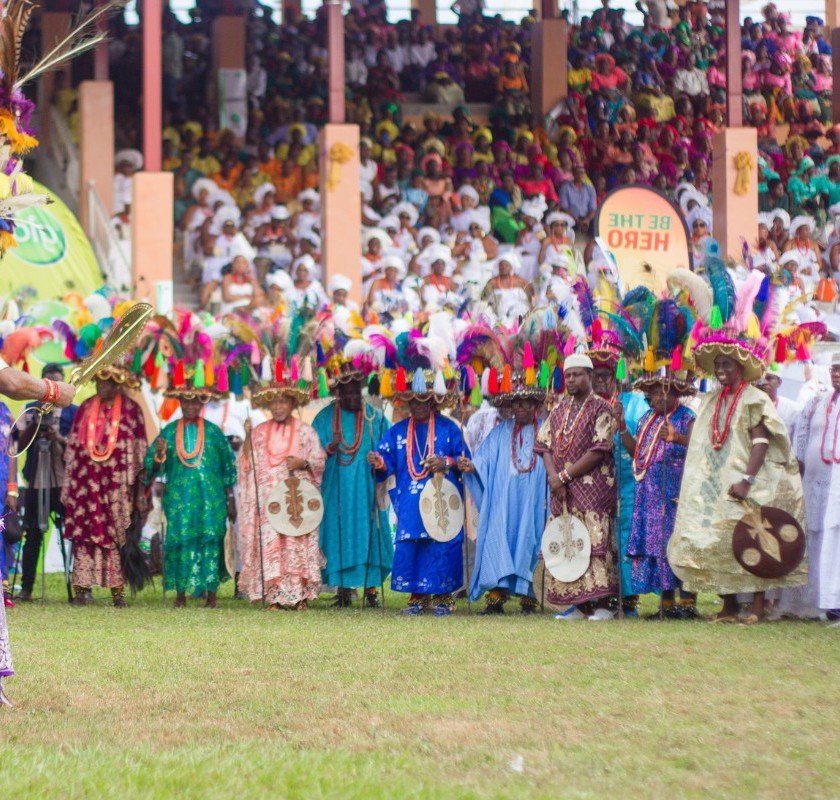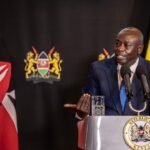Every Igbo clan has a name; example is NKWERRE, an igbo clan in Imo state and IKWERRE, an igbo clan across the border in Rivers state which by the mere presence of various ethnic groups suggests that it was an area where many groups settled.
Because all Igbo clans speak a dialect of the Igboid language, a collective ethnolinguistic identity was created, based on their collective historical memory of ancestors and their era referred to as Ndi Gboo and Mgbe Gboo.
The core Igboland is located in South eastern Nigeria (Where the oldest Bronze artefact in Nigeria was discovered in Igbo-Nkwo now known as Igbo-Ukwu). From this core Igboland, Ndi Igbo spread out to the periphery of Igboland which borders nearby ethnic groups like Igala, Idoma, Bini, Ijo, Efik, Ibibio.
Reasons for Igbo migration.
The reasons why Igbo clans spread out to the periphery of Igboland varies:
1. Expansion: Some Igbo clans grow in population and expanded outwards for more living spaces and fertile lands.
2. The decline of Nri and the rise of Benin: By the late 14th century, the Nri-Awka axis of Igboland which was thrived as a major economic hub for agricultural trade began to decline due to the rise of Bini, and Efik kingdoms as major hubs of trade with the Portuguese. So, many Igbo clans moved towards these kingdoms.
3. Slave trade: By the mid 15th century, the Portuguese and other European powers were engaging in the slave trade. Many slave trading powers raided Igbo communities for slaves and this forced these igbo clans to move back towards the core of Igboland for safety from notorious slave trading kingdoms like Benin.
Eventually Some Igbo clans aligned themselves with these slave trading kingdoms and began terrorising their fellow Igbos. Slave wars became common place and those who couldn’t defend themselves sought refuge in their deities and the slave traders called them Osu and exploited them for profits.
4. Access to the sea for fish and fertile land: As the rivers in the igbo hinterland suffered due to over fishing, igbo fishing clans moved towards the River Benue, River Niger and the Atlantic Ocean to gain access to new waters with more fish.
5. Intermarriage: In igbo culture, when a child is in trouble, he runs to his maternal home for safety. Some Igbo clans did move to their maternal homelands at various times for various reasons. In my own family, we are today from our maternal homeland due to our clan head moving in the 19th century to his maternal homeland to fight in the Uruagu-Ichi wars.
6. Ipu Obi, an igbo practice whereby the younger male members of a family leave their father’s obi which the eldest son inherits, and move out to start their own families. They create new settlements called Ana-Obi or Ala Obi depending on your Igbo dialect.
Amongst those who moved back to Igboland from distant kingdoms, some made it back as far east as Oguta. Some to the Niger delta, others to the banks of the River Niger.
What do all Ndigbo have in common?
All igbo clans speak an Igboid dialect. No linguist or anthropologist can dispute the fact that all Igbo dialects belongs to the Igboid branch. I dare any linguist to dispute this fact! It is this Igboid language that unites all Ndigbo. You say Ala, I say Ana, she calls it Ani and he calls it Ali, but we all know what is being referred to.
Picture: Human and ram’s head pendants from Igbo-Ukwu in the British Museum. Carbon dated to the 9th century AD. (Igbo Monitor)
Follow us on all social media platforms @dailyquery for more stories around the globe


























